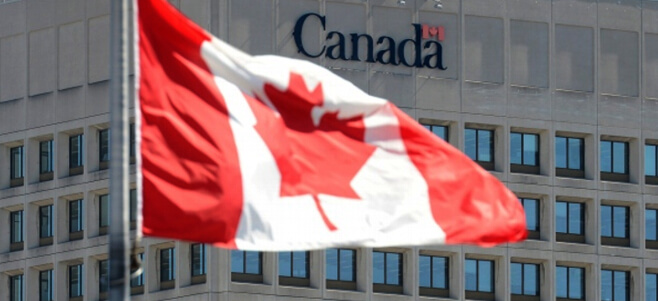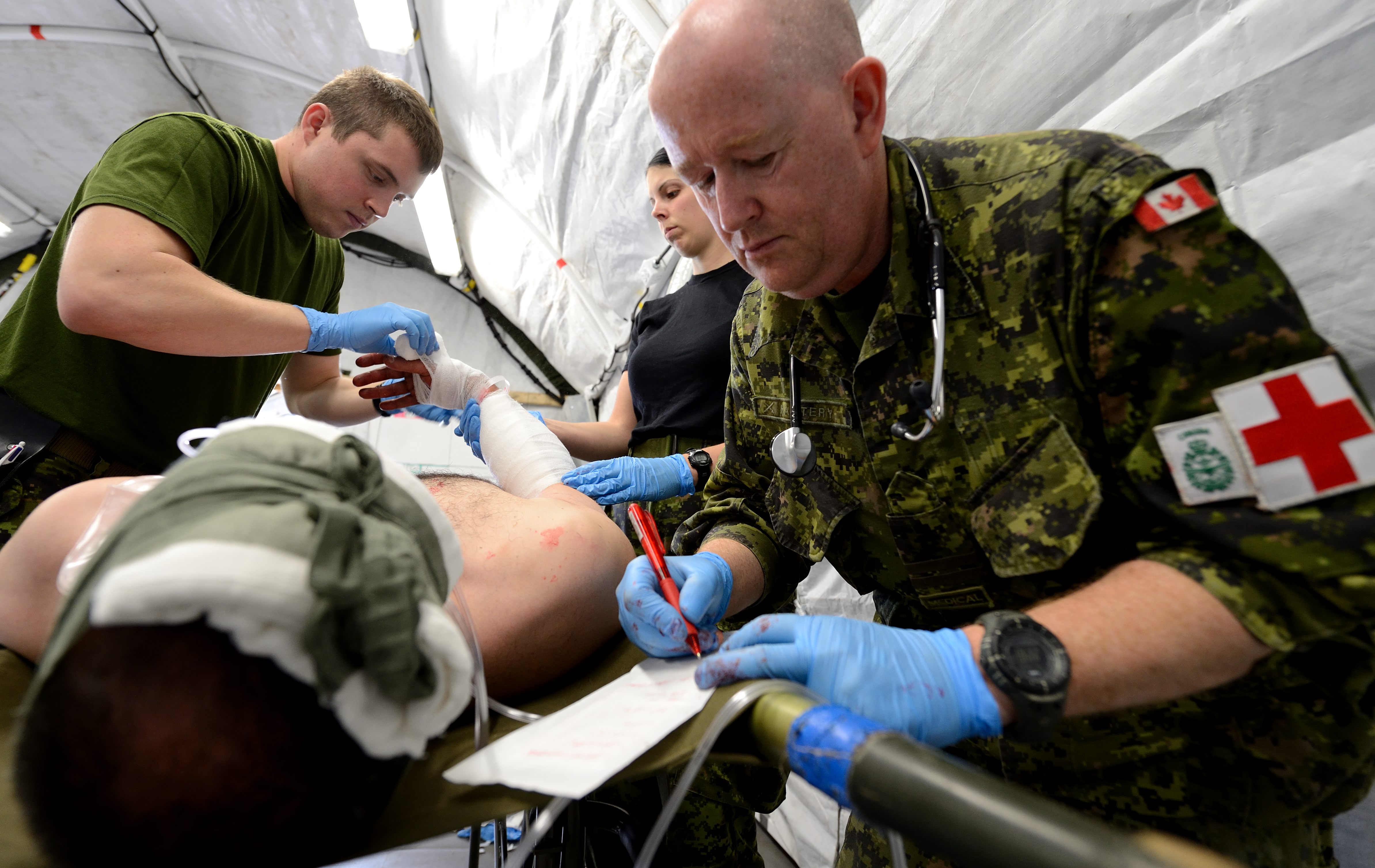Earlier this month, Ontario and Quebec reversed their stance on vaccinations for healthcare workers. The sobering prospect of an overextended health system scrambling to cope with the mass exodus of unvaccinated staff—sources put the figure at some 15 percent in Ontario and 3 percent in Quebec—prompted both provinces to make vaccination optional rather than mandatory for those already employed. This reversal, which highlights the practical challenges of compulsory immunizations, could signal trouble for mandatory vaccinations at the federal level, including within the Canadian Armed Forces (CAF).
Even before the implementation of the compulsory vaccination policy, the CAF had made impressive progress vaccinating personnel against the coronavirus. CAF members with “at least one dose” surpassed 85 percent in May. Perhaps because of mandatory vaccination policies, these numbers have only inched upward in the following months. By October 90 percent of CAF members had received two doses. (For perspective, the Government of Canada deemed approximately 74 percent of the overall Canadian population “fully vaccinated” as of November 5.)
As these figures suggest, CAF members have largely endorsed or at least acquiesced to the coronavirus vaccination requirements in effect. While individual acts of defiance have occurred, significant coverage gaps and mass resistance to the policy seems unlikely. In fact, the “small percentage” of unvaccinated personnel left Brig-Gen. Bill Fletcher, Commander 3rd Canadian Division and Joint Task Force (West), untroubled.
However, what occurs if these remaining holdouts—no matter how few—refuse to roll up their sleeves? Brig-Gen. Fletcher remained mum on the subject. The National Defence Act (NDA), though, offers guidance. One section reads:
Every person who, on receiving an order to submit to inoculation, re-inoculation, vaccination, re-vaccination, other immunization procedures … wilfully and without reasonable excuse disobeys that order is guilty of an offence and on conviction is liable to imprisonment for less than two years or to less punishment.
Although not enumerated there, the so-called “powers of punishment” indicate that lesser punishments could include fines, demotions, and discharge. The CAF therefore has various options—ranging in severity—for dealing with personnel who decline to get vaccinated against the coronavirus.
Prior to meting out punishment, though, authorities would have to adjudicate formally—by way of summary trial or court martial—those charged with violating the relevant portions of the NDA. In the past, such proceedings for declining vaccines have not gone smoothly for military prosecutors. As previously discussed, the 1998 decision of a CAF member, Mike Kipling, to reject the required anthrax vaccine—and the Department of Defence’s resultant move to court martial him—precipitated a case that plodded through the legal system.
Of course, the circumstances of the anthrax and coronavirus vaccines differ significantly. Kipling’s defence, which the court initially accepted, rested on the debatable safety of “the unlicensed and unapproved vaccine” administered to military personnel placed within striking range of Saddam Hussein’s presumed biological weapons’ arsenal. In contrast, the Government of Canada and the National Advisory Committee on Immunization (NACI) have given their imprimatur on several coronavirus vaccines administered to millions of Canadian civilians. If resurrected, Kipling’s argument would likely not hold weight in this current context.
Assuming that vaccine shirkers could develop a viable legal argument, even attempting to prosecute them would represent an enormous burden on Canada’s military justice system. According to recent figures, the CAF’s Regular Force stands at around 62,500. Initiating judicial proceedings against 10 percent (6,250), 5 percent (3,125), or even 1 percent (625) of the Regular Force would expend considerable time and resources. Factoring in the Reserve Force would only raise the legal costs.
However, judicial proceedings are a last resort. As outlined in a directive issued this month, authorities appear to favour enforcement through “administrative action.” This ostensibly less punitive approach, which does not invoke the NDA’s “Code of Service Discipline” or involve judges, nevertheless could have the same weighty outcome as a court martial. Indeed, contravening the directive (or any) could bring “remedial measures” aimed at achieving compliance (i.e., vaccination) and, if persistently disregarded, the more drastic step of dismissal after an “Administrative Review.”
At first glance, administrative action would seem to obviate the challenges, namely the amount of time and red tape, associated with a summary trial and especially a court martial. Yet, while administrative action lacks the structure and formality of judicial proceedings, individuals dealt with under such provisions can initiate an appeal-like “grievance process.” Resolving this process, which some have argued disproportionately favours authorities, can take years and therefore represents a strain on the CAF.
But what would happen if authorities hypothetically succeeded in court-martialling or pursuing administrative action against hundreds or thousands of CAF members? Even lesser punishments, such as fines, could nevertheless lead to resentment and trigger protest retirements and petitions for voluntary release. Compulsory release or imprisonment, meanwhile, would result in the same loss of human resources, albeit under very different circumstances. Either way, such a move would undoubtedly wreak havoc on morale and overall readiness for the CAF.
At present, the CAF can ill afford to alienate or lose additional service members because of dissatisfaction with present vaccine mandates. Recruitment figures have perennially fallen behind targets. And the pandemic, along with the CAF’s roundly condemned response to pervasive sexual misconduct within its ranks, has harmed retention and further hindered recruitment efforts. Last month, Gen. Wayne Eyre, Acting Chief of Defence Staff, reported that the CAF needed a staggering 7,500 members.
In the end, the CAF—and indeed the entire federal government—faces an unenviable quandary for which no easy solutions exist. A pool of unvaccinated personnel, who have a higher chance of contracting, transmitting, or succumbing to the coronavirus, imperils the safety and efficacy of institutions like the CAF. However, adjudicating and punishing those who oppose vaccination could prove divisive and equally destabilizing. For this reason, the CAF specifically and the Government of Canada more broadly might have to decide which is more institutionally disruptive: the coronavirus or vaccine mandates.
Photo: Canada begins Covid-19 vaccinations (December 18, 2020), by Marco Verch Professional Photographer via Flickr. Licensed under CC BY 2.0.
Disclaimer: Any views or opinions expressed in articles are solely those of the authors and do not necessarily represent the views of the NATO Association of Canada.



